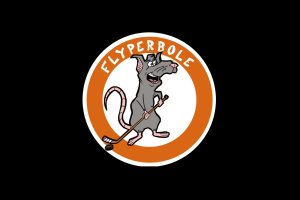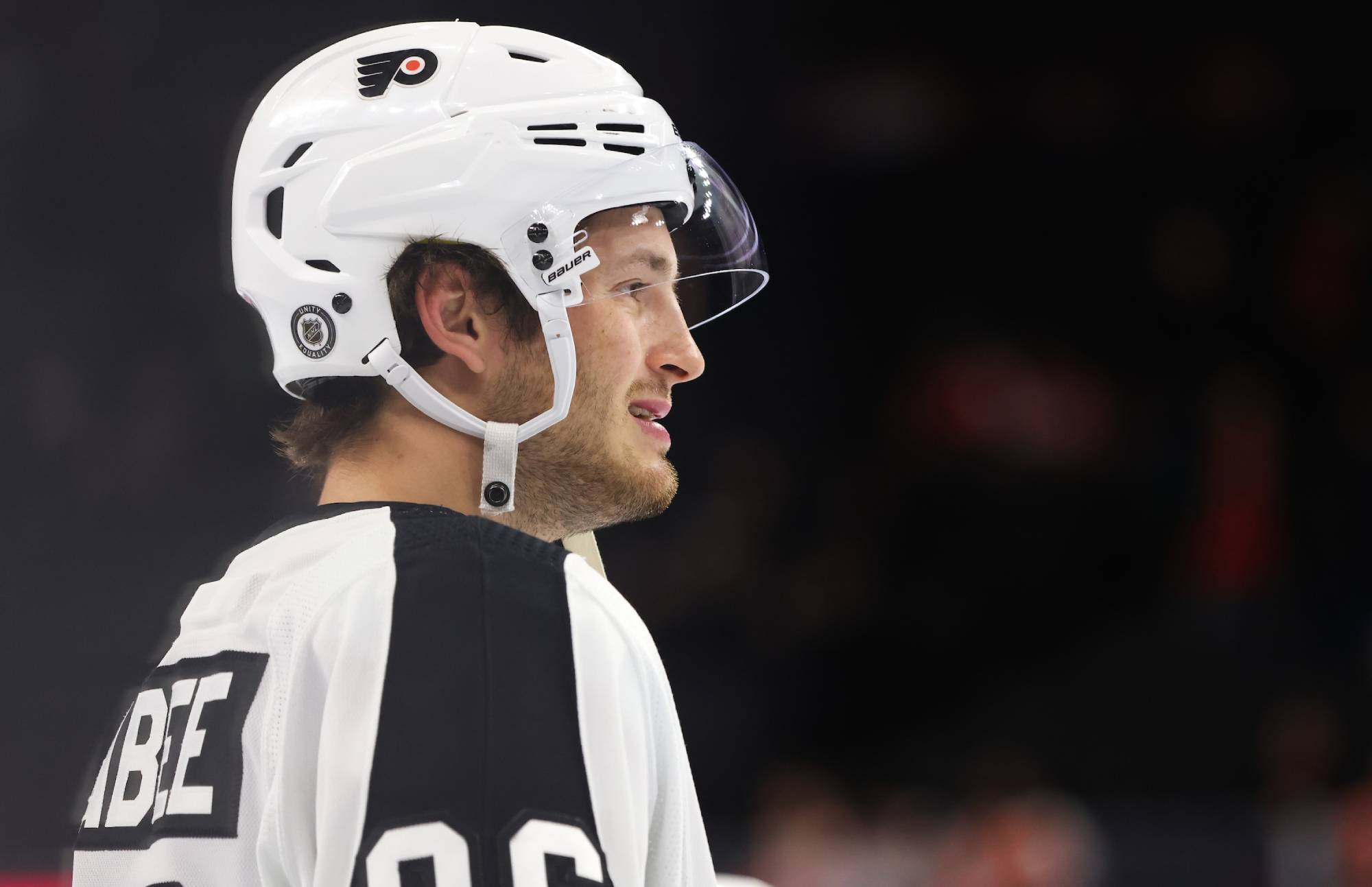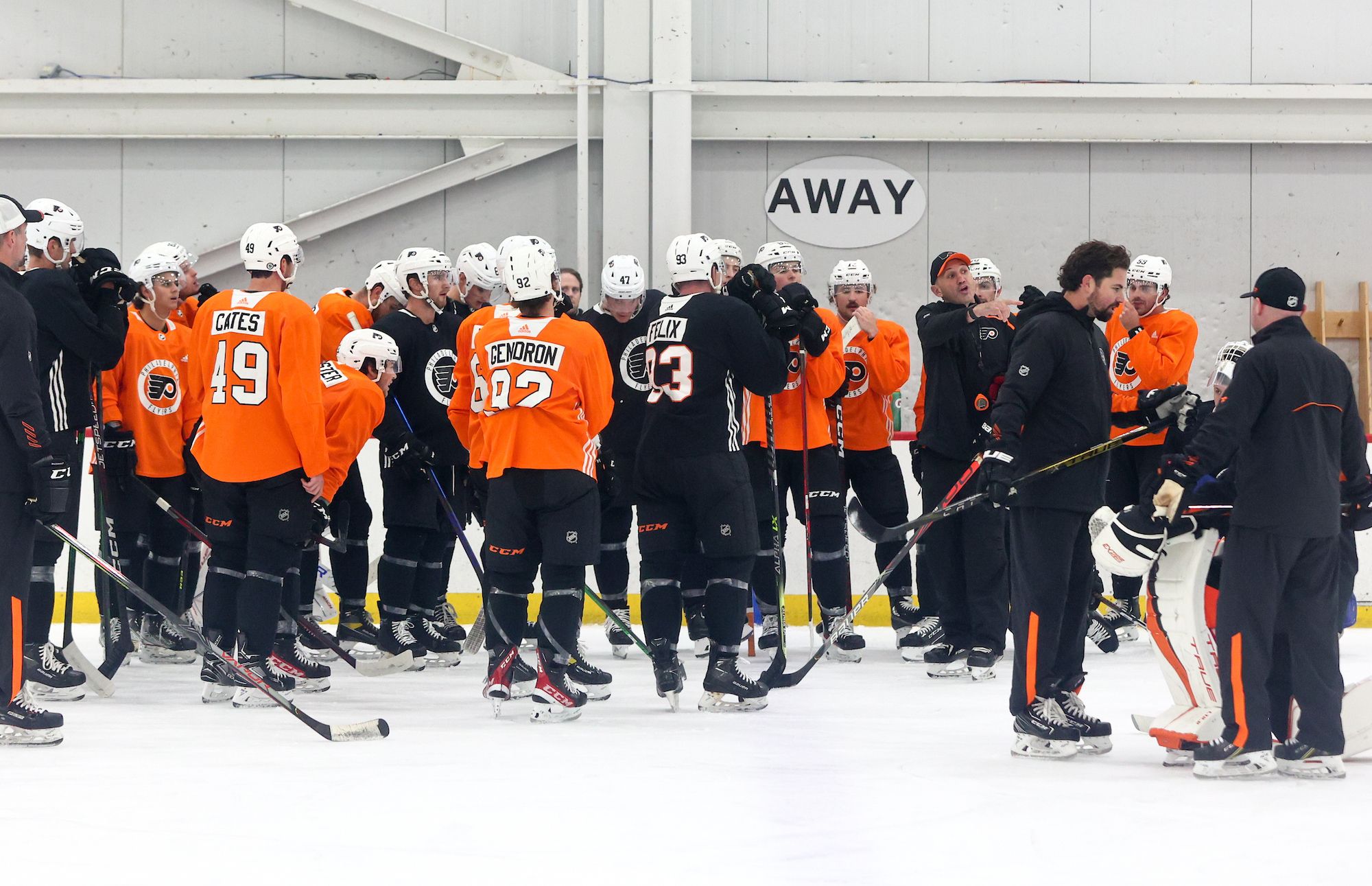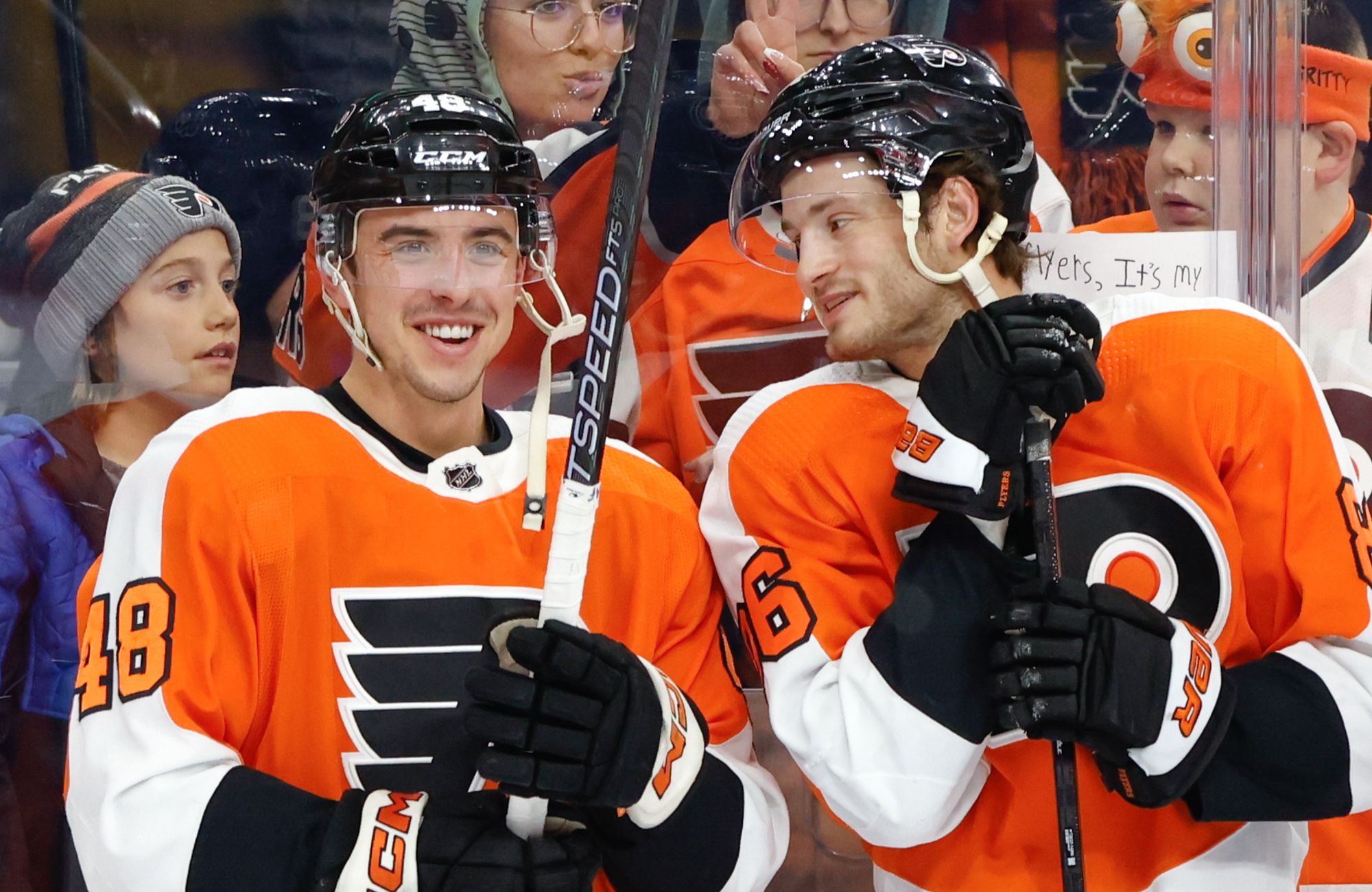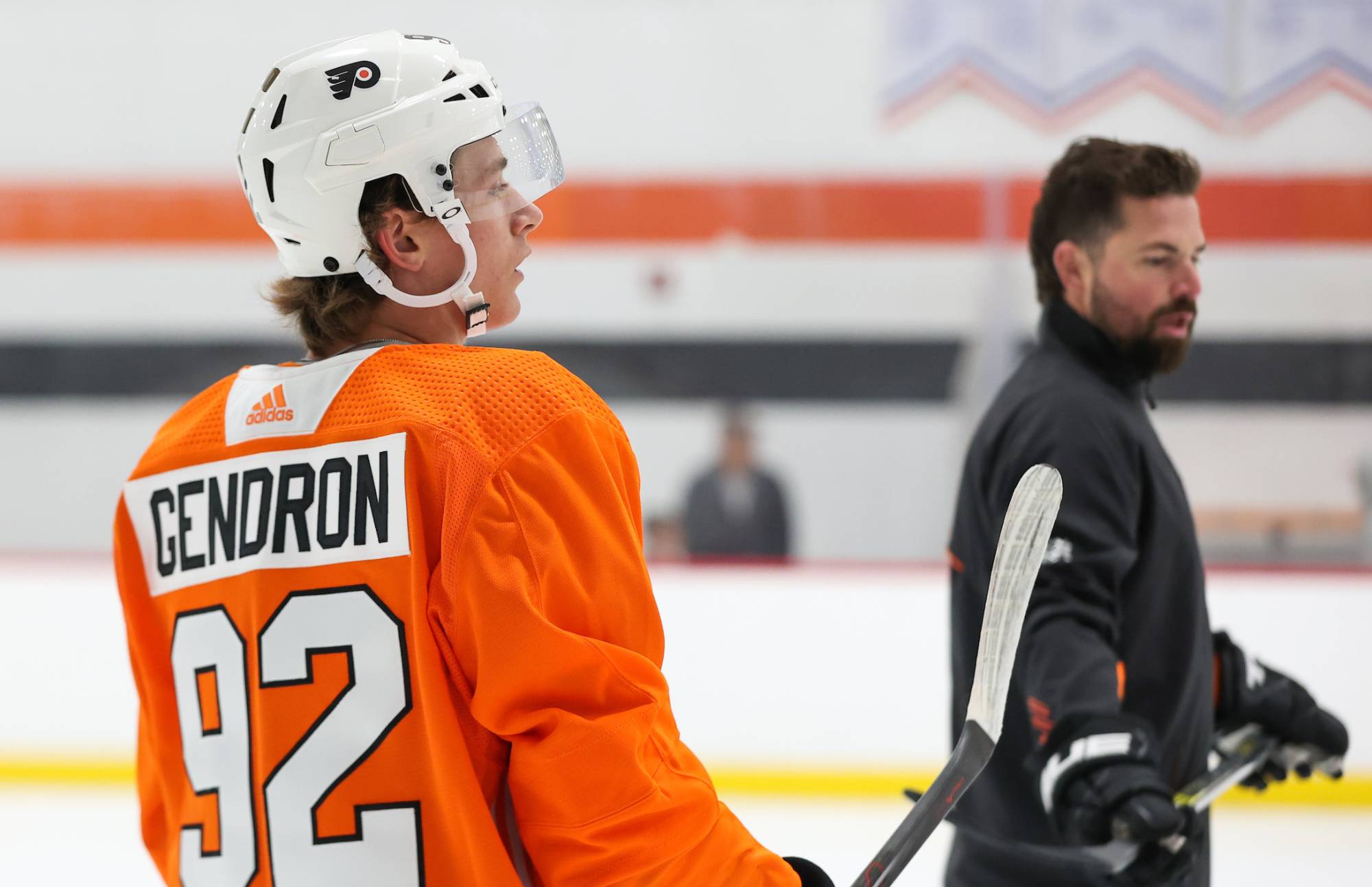Twenty-five minutes. It took the Flyers just over 25 minutes to lose Wednesday night’s game. Sure, you could say that they made a valiant comeback effort and the game wasn’t truly lost at the time of the Washington Capitals’ fifth goal — I mean, they scored four unanswered goals in a third period versus the best team in the league already this season — but truthfully, if you’re looking at a five goal deficit at any point of the game, nine times out of ten you’ve already lost the game. And in the Flyers case, they had done just that.
When a team puts on such a poor performance, sometimes the best thing to do is to throw away the footage and regroup. And that may be applicable here, but rather than doing that, I decided to re-watch the first two periods of the game to find out what went wrong. Or maybe I wanted to watch that train wreck over again because I’m a psychopath or something, who’s to say.
Goal one: Ovechkin is kinda good Pt. 1
One of the oldest actions in the “things not to do while playing hockey” playbook, don’t get caught puck watching. In this instance, it’s none other than Ivan Provorov who falls victim to the tendency.
First of all, let’s appreciate that pass by Alex Ovechkin. That’s an incredible display of skill by one of the best. Second of all, as Maddie pointed out in yesterday’s morning observations, Travis Sanheim didn’t really come close to stopping said pass. First, the puck goes right by his left skate and under his stick, and then it looks like he begins to lose his balance as he pivots, and has to lean on his stick to remain upright, thus leaving the passing lane wide open. Finally, we get to Provorov.
The Flyers’ unequivocal number one defenseman has had a rough season overall, but the root of his problems have mainly been his play with the puck. This time however, it was his play without the puck that led to the Flyers giving up a goal. It’s a fast play, and it’s easy for us to look back and say that he should’ve seen Tom Wilson entering the play earlier than he did, but he really should have. Once the puck winds up on the opposite side of the ice, there’s no reason for Provorov to be watching Ovechkin anymore. It’s hard to see from the above angle, but we can see where he’s looking on one of the replays available.
Okay so we can’t actually see Provorov’s eyes in this angle, but you can tell by both his body and stick positioning that he was locked onto Ovechkin and the puck, not Wilson. Very simply, this goal boils down to the two’s failure to execute a defensive play in an area of the game that’s been a concern for most of the season; net-front coverage.
Goal two: Wouldn’t have happened in 2004
Not only was this a two-line pass, which was of course outlawed prior to the NHL’s return to action in 2005 following their season-long lockout, but it was a three-line pass! There aren’t many moments in a season, let alone a game, where a player is able to make a pass from the defensive zone and connect with a teammate all the way in the attacking zone, but Carl Hagelin was able to do exactly that.
This was probably the most frustrating goal just because of the circumstances that surrounded it. When the game was live, the moment that the broadcast returned from a commercial break and the referee was standing in the middle of the ice waiting to make an announcement, you just knew that the puck had indeed crossed the goal line. Brett Connolly beats Sanheim into the zone, and beats Brian Elliott with a shot that he probably should’ve stopped. He did get a piece of it, but it wasn’t enough.
That sound you heard was not the post, but the camera. That’s a goal. pic.twitter.com/rGL5tjKlek
— Broad Street Hockey (@BroadStHockey) March 7, 2019
Connolly shouldn’t have been able to get behind Sanheim in the neutral zone to begin with, but that’s a stoppable shot. Outside of that, there’s not much to say about this goal. It’s one that Elliott certainly wants back.
Goal three: Ovechkin is kinda good Pt. 2
In a shocking turn of events, leaving Ovechkin alone on the power play did not work in the Flyers’ favor.
At the beginning of the clip, Scott Laughton leaves the zone early and takes himself out of the play. Then Claude Giroux joins Radko Gudas along the boards to attempt to steal the puck from Nicklas Backstrom. This causes an Ovechkin-sized lapse in coverage on the left side of the ice, and allows him plenty of time to pick his spot on Elliott. In their defense, they thought they were about to the clear the zone, and if not for a fantastic keep by John Carlson, they would’ve. But still, that just can’t happen. You can’t leave the best goal scorer in league history alone and not expect that to be the end result. Someone had to account for him being in the spot that he’s not only always in, but also the most dangerous in.
Goal four: Off of Ghost and off the post
Sometimes, the puck just seems destined to end up in the back of your net no matter how good or bad you defend the puck-carrier. That’s what happened on goal four.
Yes, some of the blame can be placed on Philippe Myers here because he was beat at the blue line, but his miss-play wasn’t why the goal was scored; it was merely a contributing factor. And yes, the shot comes from a place on the ice where you’d like Elliott to make a save, but the shot was also tipped. And really, there’s nothing bad to say about how Shayne Gostisbehere defended here. It’s his stick that the puck deflects off of, but he kept Andre Burakovsky to the outside and his gap control was satisfactory. This goal probably falls on Elliott the most, the redirection wasn’t that drastic, but it’s goals like these that just feel like fate.
Goal five: Rad-noooooo
Remember earlier when I said that it was rare to see a three-line pass? Well it happened again. So either it’s not as rare as I think it is, or the Flyers got burned by an anomaly twice. And honestly, that just feels right.
Right from the start it’s clear that something went very wrong here. Somehow, the eventual goal-scorer, Backstrom, is given the entire middle of the ice uncontested. After getting beat on the entry (again) at the start, Sanheim actually plays the puck carrier, Jakub Vrana, relatively well. By cutting in front of his goaltender instead of chasing him behind the net, he takes the quickest route and gives himself the opportunity to block the pass. But, as we know, he’s unable to in the end, and Vrana connects with Backstrom for the fifth and final Capitals’ goal. However, there’s two other Flyer skaters that actually do share the majority of the blame.
At the :02 mark of the video you can see Gudas look over his shoulder at the puck carrier, Nick Jensen, as he begins to skate towards his own zone. However, that’s the only time that his gaze is not fixated on the target of the pass, Vrana. Over the next eight seconds Gudas does not once look back to see if any Capital is joining the rush, and by the time he lays his eyes on Backstrom he’s already in the process of taking the shot. Gudas needs to exhibit better awareness on this play, but as we said before, he’s not the only one that deserves blame.
Shift your focus away from Gudas and onto Sean Couturier and you’ll be greeted with one of those infamous “controller disconnected” moments. Simply put, the team’s best defensive forward, and arguably their most valuable player, looked thoroughly uninterested in playing defense. It was so unlike Couturier that my initial thought was that he must’ve been on the ice for an extended period of time — and he was, to a degree. Couturier had been on the ice for just about 1:10 when the pass towards Vrana was made, which, while above the league average shift length, is not crazy enough to exonerate him here.
It’s worth noting that this goal was the third time that the Flyers were burned by a stretch pass, which begs the question, “what are the Flyers actually doing in the neutral zone right now?” but that’s a question for another day.
The Flyers once again dug themselves a hole that was too deep to get out of, and this time it was their star players that brought the shovels. Another showing like this tomorrow night and their already slim chance at making the playoffs will drop even further.




